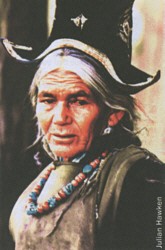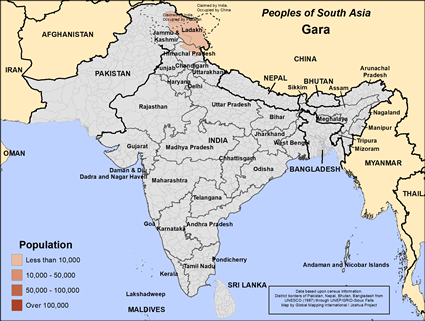Gara in Pakistan

Photo Source:
Copyrighted © 2026
Peoples of the Buddhist World, Asia Harvest All rights reserved. Used with permission |

Map Source:
People Group data: Omid. Map geography: UNESCO / GMI. Map Design: Joshua Project
|
| People Name: | Gara |
| Country: | Pakistan |
| 10/40 Window: | Yes |
| Population: | 1,200 |
| World Population: | 1,200 |
| Primary Language: | Balti |
| Primary Religion: | Buddhism |
| Christian Adherents: | 0.00 % |
| Evangelicals: | 0.00 % |
| Scripture: | Portions |
| Ministry Resources: | No |
| Jesus Film: | Yes |
| Audio Recordings: | Yes |
| People Cluster: | South Asia Tribal - other |
| Affinity Bloc: | South Asian Peoples |
| Progress Level: |
|
Introduction / History
Few sources have ever mentioned the Gara as a distinct ethnicity— making it even more surprising that the Indian authorities have granted them official status. Those few sources that do mention the Gara usually list them as a sub-group of the Ladakhi. While it is true that much of their culture mirrors Ladakhi culture, there are significant social differences between the two peoples. The main difference is a linguistic one. The Gara speak an Indo- European language, totally distinct from the Tibeto-Burman Ladakhi.
What Are Their Lives Like?
The Gara serve the Ladakhi as blacksmiths. Traditionally there was a clear distinction between the Ladakhi and smaller servant groups in the area. K S Singh notes, "The Ladakhis traditionally did not participate in the marriage and death rituals of the Gara, Mon and Beda. Secular attitudes have brought neighbouring communities closer to each other socially." Today, even though the Gara live in ethnically mixed communities, the Ladakhi consider the Gara the lowest social class. The Gara are still not allowed to hold any position in the village or monastery administration. They supply the Ladakhi with iron implements. In return, they usually receive a fixed amount of grain as payment.
Ceremonies are organized throughout the year in which Gara youth are afforded the opportunity to search for a spouse. Young women wear their best traditional clothing to these ceremonies, as a display of their needlework goes a long way to attracting a prospective suitor. Marriages are arranged "through negotiation, elopement, exchange, courtship, etc.... Bride price is paid both in cash and kind. The reasons for seeking divorce are adultery, barrenness, maladjustment, impotency, cruelty and inability to meet the wife's expenses, and remarriage is permissible."
What Are Their Beliefs?
Most Gara families follow Tibetan Buddhism, while a few are Hindus, especially among the Gara in Himachal Pradesh. They observe all Buddhist festivals, but they are highly influenced by bon, a form of shamanism. Bon involves a belief in spirit worship and demonism. Powerful demonic spirits are called upon for assistance and protection.
Although more than 200 Ladakhi people believe in Christ today, and the gospel has been established in the area for 150 years, there are no known Christians among the Gara. The social divisions between the different groups create barriers for the gospel.
What Are Their Needs?
The Gara people need to put all their trust and faith in Jesus Christ. They need to depend on him in their spiritual battles with evil.
Prayer Points
Pray for a movement of Jesus to heal and strengthen Gara communities.
Pray for a "Book of Acts" type of movement to Christ among the Gara.
Pray for the Gara people to understand and embrace that Jesus wants to bless their families and neighborhoods.
Pray for Holy Spirit anointed believers from the Gara people to change their society from within.
Pray for a movement in which the Holy Spirit leads and empowers disciples to make more disciples.